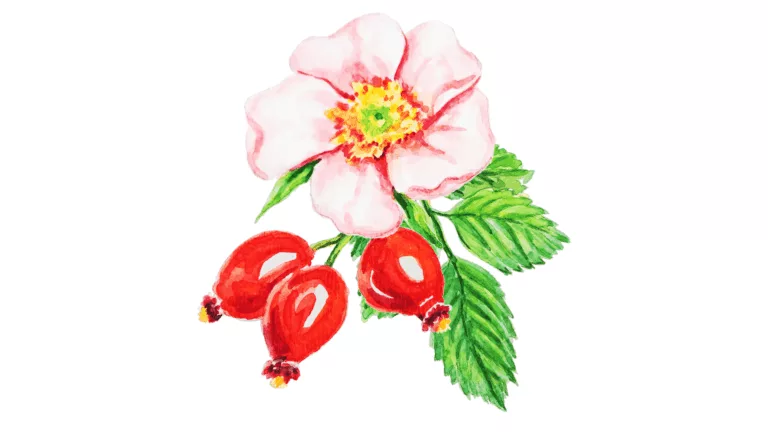Rosehip

The rosehip (Rosa canina) is a wild, thorny shrub from the rose family (Rosaceae). The plant is the closest relative of the rose, hence its name “wild rose.” Its kinship with the rose is why it has been called the “Queen of herbs.”
Many legends speak of the magical power of the wild rose, ancestor of the refined garden rose. An ancient Greek legend ties the wild rose to Aphrodite, the goddess of beauty and love: upon learning of the death of her beloved Adonis, she rushed to him through dense thickets of thorny rose-hip bushes. Her grief was so great she did not notice the sharp thorns tearing her delicate skin. Each drop of divine blood that fell upon the green branches turned into a red wild rose. For the Slavic peoples, the rose hip symbolized youth, love, and beauty. Our forebears believed the wild rose possessed benevolent magic, credited with the miraculous power to rekindle the flame of lovers’ feelings. It was thought not only to awaken passion but also to protect love. One who wished to experience the delights of love would bathe in rose water made from wild rose petals. Scattered around the home, the petals of the wild rose brought harmony and understanding.
In antiquity, rose hips were used to treat various ailments, malaria, and scurvy. Infusions of the fruit were used for ulcers and stomach problems, eye diseases, and heart conditions, while the seed oil was applied for burns and colds. In folk medicine, rose hips are used to boost vitality and the body’s defenses, to stimulate metabolism, and during convalescence after serious illness. The rose hip is considered especially beneficial for strengthening the heart and circulatory system. Because of their pectin and tannin content, folk medicine also uses rose hips for gastrointestinal and bronchial ailments.
Their high vitamin C content makes rose hips an excellent immune stimulant; consuming them helps protect the body from colds, flu, and upper respiratory infections. In addition, vitamin C supports collagen synthesis, which is crucial for maintaining healthy blood vessels and healthy skin. Rose-hip flowers are a source of rose oil valued in the perfumery, cosmetics, and food industries.








